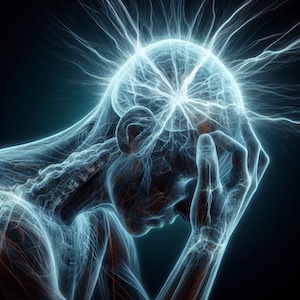Brief communications
Vol. 34 No. 2 (2024)
Kinetic oscillation stimulation for the preventive treatment of refractory chronic migraine: a case series

Publisher's note
All claims expressed in this article are solely those of the authors and do not necessarily represent those of their affiliated organizations, or those of the publisher, the editors and the reviewers. Any product that may be evaluated in this article or claim that may be made by its manufacturer is not guaranteed or endorsed by the publisher.
All claims expressed in this article are solely those of the authors and do not necessarily represent those of their affiliated organizations, or those of the publisher, the editors and the reviewers. Any product that may be evaluated in this article or claim that may be made by its manufacturer is not guaranteed or endorsed by the publisher.
Received: 26 August 2024
Accepted: 18 December 2024
Accepted: 18 December 2024
925
Views
177
Downloads







